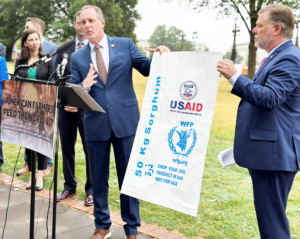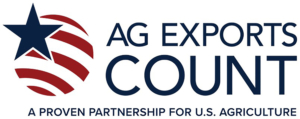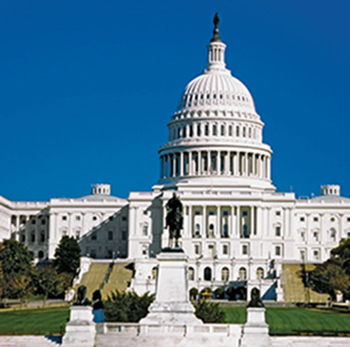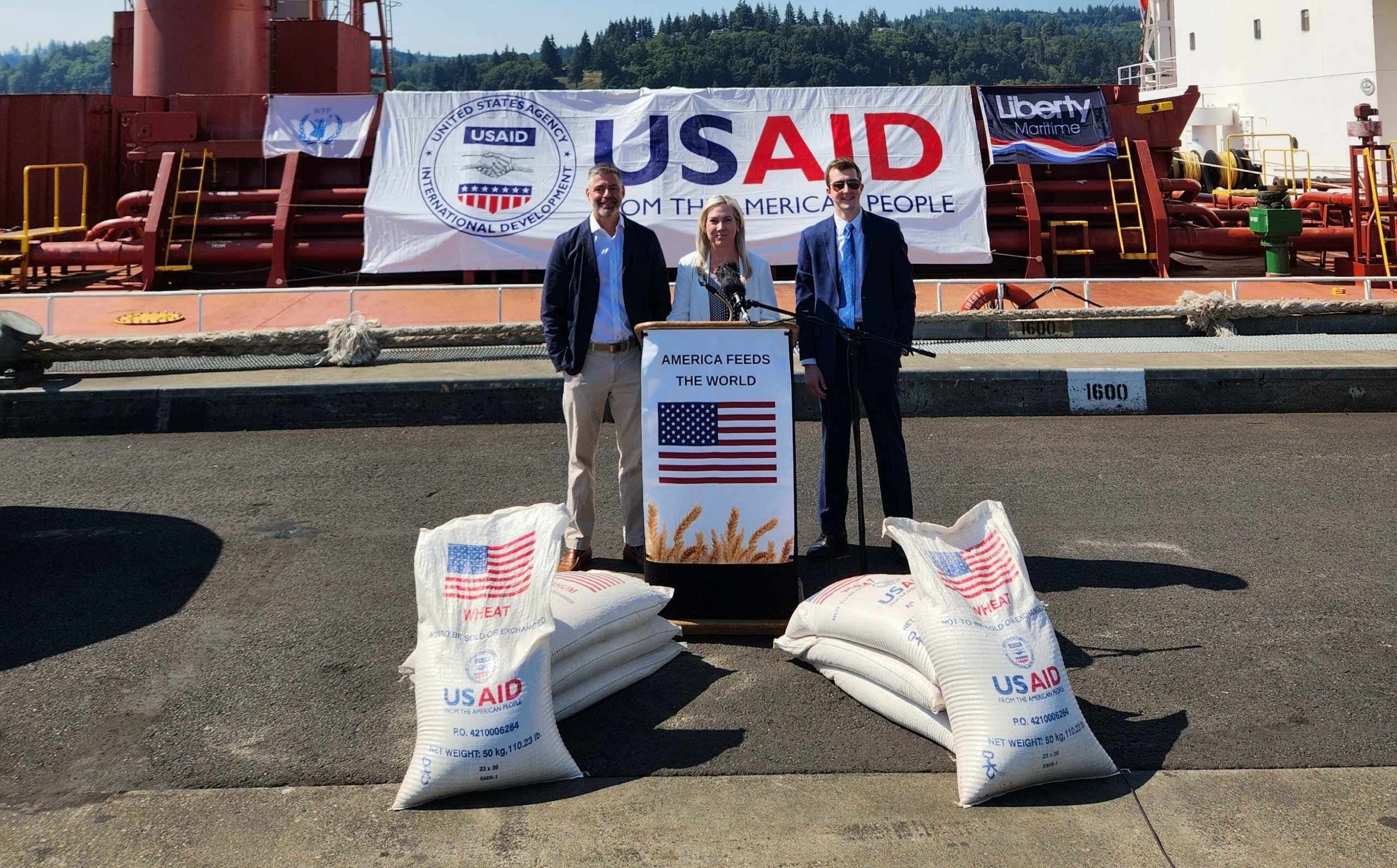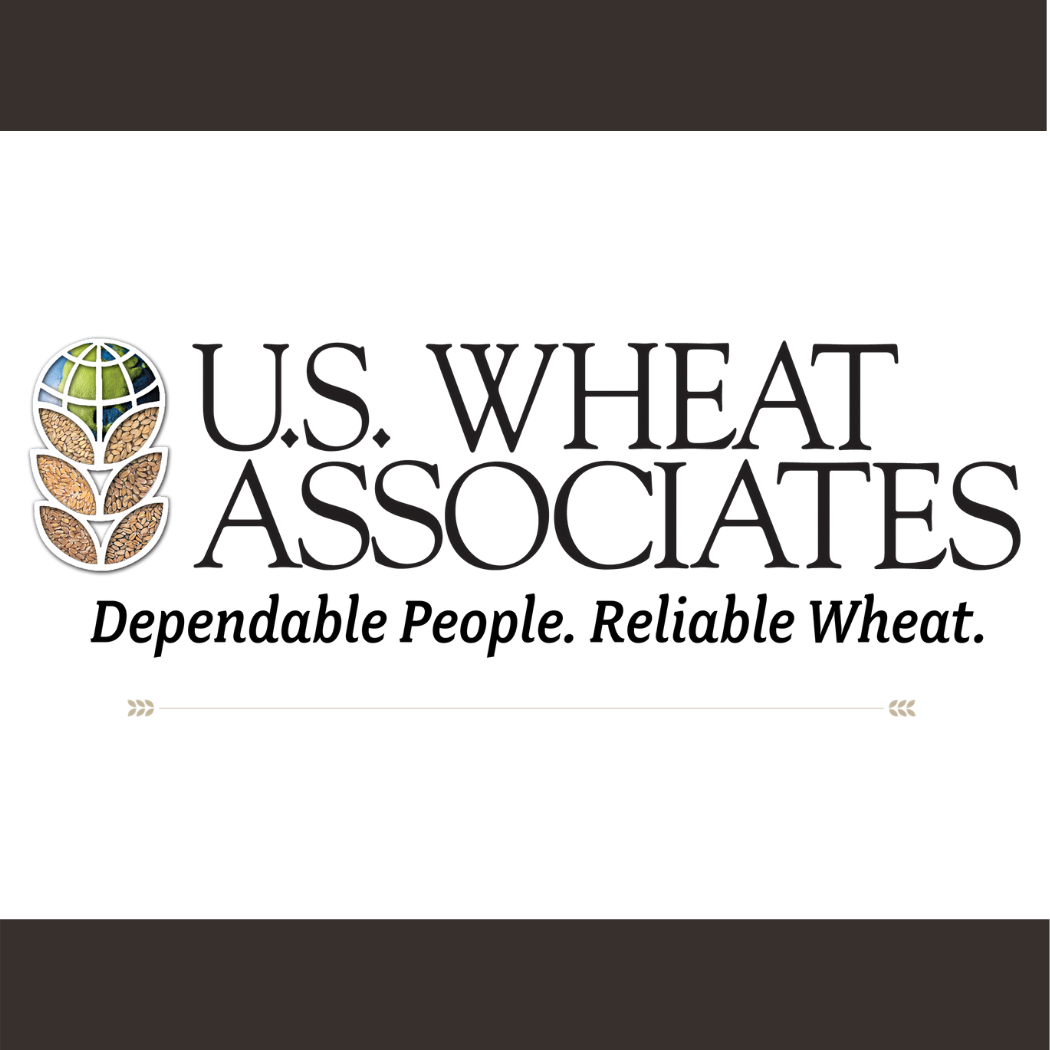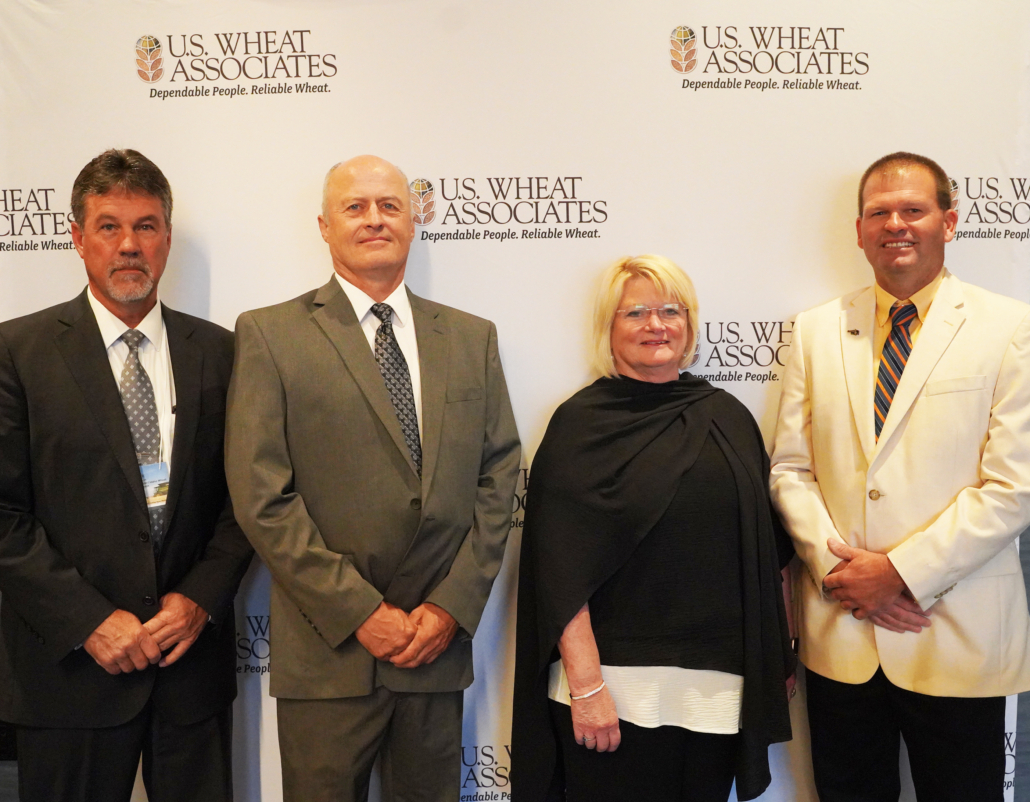Organizations representing Pacific Northwest wheat growers and the U.S. milling industry are celebrating the latest Food for Peace donation of 28,000 metric tons of U.S. soft white (SW) wheat (above). On August 15, 2023, longshoremen at the Port of Longview, Wash., loaded the wheat on the U.S.-flag vessel “Liberty Glory” now bound for the Arabian Peninsula in the Middle East to help alleviate one of the worst hunger emergencies on the planet.
U.S. wheat farmers, U.S. Wheat Associates (USW), the National Association of Wheat Growers (NAWG), and the North American Millers’ Association (NAMA) have been partners in U.S. international food assistance programs for 70 years. Since 2020, in fact, the American people have donated more than 1 million metric tons of wheat and millions of dollars in food aid every year. The soft white wheat donation loaded Aug. 15 was grown in Washington state, Oregon, and Idaho.
The U.S. has a long history of administering the largest, most diverse, reliable, safe, and effective food assistance programs in the world. Today, the worst hunger crisis in a generation makes U.S. support of food aid programs more important than ever. Yet humanitarian programs like USAID’s Food for Peace program are under intense pressure from some policymakers seeking to cut program funding and divert resources away from emergency hunger needs. In July 2023, USW, NAWG, and NAMA sent a letter with 128 other organizations urging lawmakers to support international food aid programs.
From American Farmers to the World
Full funding for Food for Peace and other U.S. food assistance programs is critical to addressing the substantial humanitarian feeding needs around the world. Food for Peace demonstrates the success of starting American foreign policy at home, with American farmers and industry, and ending with food in the hands of those who need it the most.
“The U.S. food and agricultural community are unique stakeholders in the international food aid conversation,” Kansas wheat farmer Ron Suppes said in congressional testimony after visiting Kenya and Tanzania on a trip to monitor U.S. wheat food aid programs in 2017 (photo above). “I want to see us continue our trend of excellence in providing food aid to the countries that need it most.”
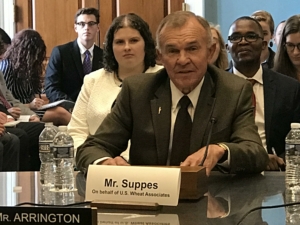
Kansas wheat farmer Ron Suppes testifying before Congress on the value of U.S. food aid programs in 2017.
Additionally, wheat growers and the milling industry applauded the introduction of the American Farmers Feed the World Act in June 2023. This legislation would “put the food back into food aid” by restoring Food for Peace to its roots as a purely in-kind commodity donation program and requiring that at least half of all Food for Peace funds be used to purchase American commodities and ship them overseas, minimizing administrative costs and restoring accountability and transparency.
“U.S. millers are proud of the role they play in alleviating world hunger through food aid. Today’s wheat shipment is a moving reminder of the need to both protect Food for Peace from harmful budget cuts and support the American Farmers Feed the World Act to ensure Food for Peace funding goes toward feeding as many people as possible in this time of unprecedented hunger,” said NAMA Senior Director of Government Affairs Kim Cooper.
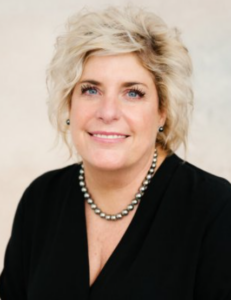
Nicole Berg, NAWG Past President
“This recent donation of U.S. wheat symbolizes our commitment to combating hunger and fostering global food security,” said Nicole Berg, a Washington wheat farmer and Past President of the National Association of Wheat Growers. “During a journey to Kenya and Tanzania in 2019, I saw firsthand the effects of these life-changing programs and U.S. commodities. In testimony before Congress I shared the story of a man I met there who emphasized his community is always so happy with the high quality of the U.S. food and wheat flour they receive. NAWG encourages lawmakers to protect funding for Food for Peace and include the American Farmers Feed the World Act as part of the Farm Bill to help feed the world with high-quality American wheat and continue paving the way for excellence in food security and assistance.”
# # #
About USW:
U.S. Wheat Associates’ (USW) mission is to “develop, maintain, and expand international markets to enhance wheat’s profitability for U.S. wheat producers and its value for their customers.” USW activities are made possible through producer checkoff dollars managed by 17 state wheat commissions and cost-share funding provided by USDA’s Foreign Agricultural Service. USW maintains 15 offices strategically located around the world to help wheat buyers, millers, bakers, wheat food processors and government officials understand the quality, value, and reliability of all six U.S. wheat classes. For more information, visit www.uswheat.org.
About NAMA:
NAMA is the only national trade association that exclusively represents the interests of the North American wheat, corn, oat, and rye milling industry before Congress, federal agencies, and international regulatory bodies. Member companies operate mills in 32 states, Puerto Rico, and Canada, representing more than 90 percent of total industry production capacity. The North American Millers’ Association is an equal opportunity provider and employer. Persons who require alternative means of communication for program information should contact generalinfo@namamillers.org or 202-484-2200.
About NAWG:
NAWG is the primary policy representative in Washington D.C. for wheat growers, working to ensure a better future for America’s growers, the industry and the general public. NAWG works with a team of 20 state wheat grower organizations to benefit the wheat industry at the national level. From their offices on Capitol Hill, NAWG’s staff members are in constant contact with state association representatives, NAWG grower leaders, Members of Congress, congressional staff members, Administration officials and the public.






